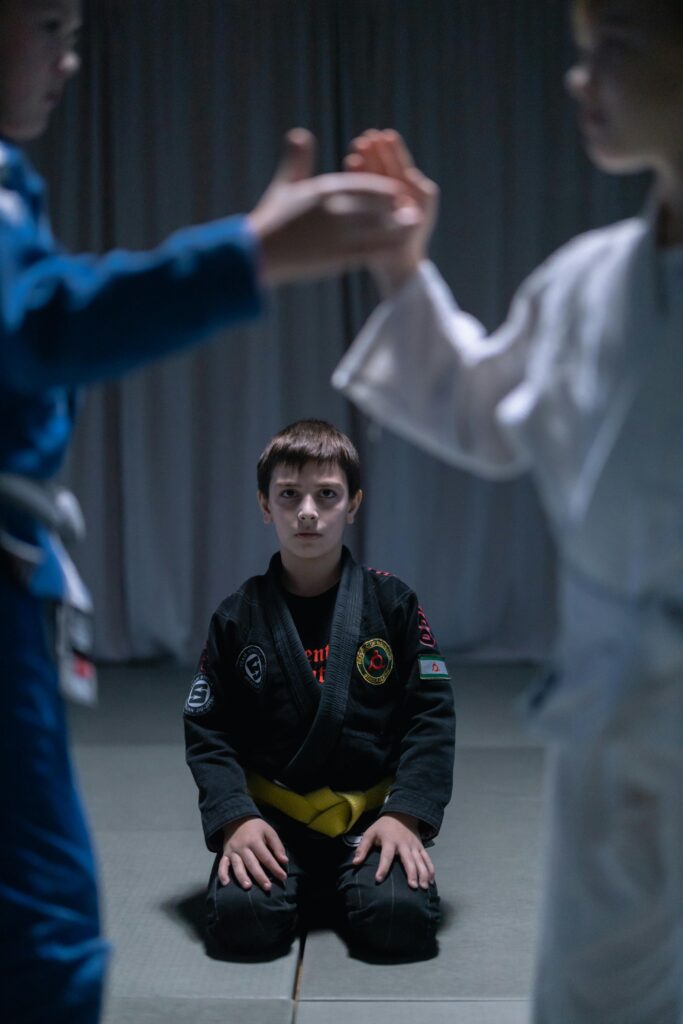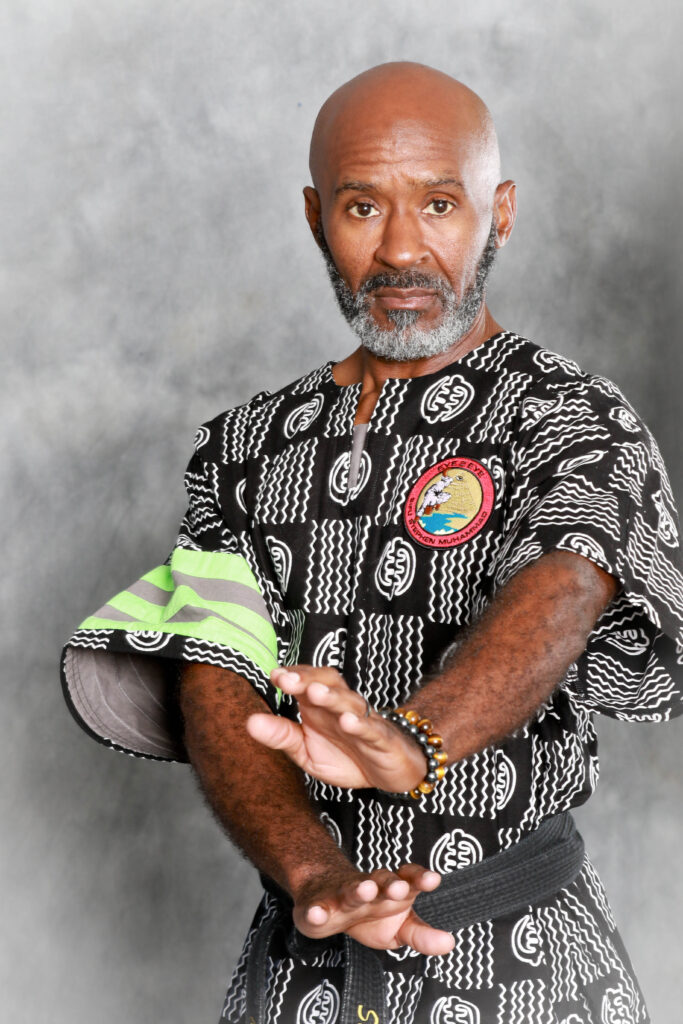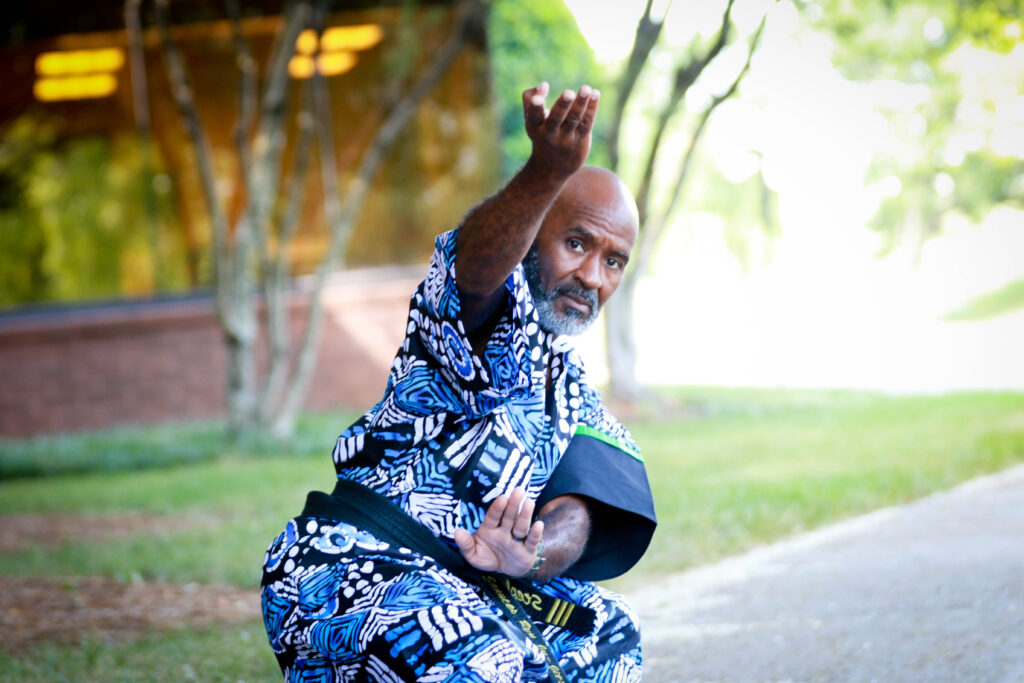Karate isn’t just a martial art; it’s a path to personal growth, confidence, and real-life self-defense. What fascinates me most about karate is how adaptable it is.
Whether your goal is self-defense, discipline, or just building confidence, karate has something to offer. Unlike many forms of fitness, karate brings benefits for the body and mind that stick with you beyond the dojo.
As a martial arts instructor, I love seeing how karate changes people, especially when they realize it’s so much more than just kicks and punches. If you’ve ever been curious about how karate can fit into your life, here’s a look at why it has captured the interest of so many people worldwide.
Karate for Real-Life Self-Defense: Skills You Can Apply Today
In karate, we learn a range of practical skills that can be applied right away in everyday situations. I’m not talking about complex maneuvers or memorizing techniques; karate teaches simple, effective moves that anyone can use.
Essential Karate Moves for Everyday Safety
Basic techniques like blocking and striking have real-life applications. A block can deflect an attacker’s energy, giving you time to act.
Striking, though it may seem like a skill that requires power, is about precision. With the right technique, even a small person can protect themselves effectively.
Situational Awareness and Prevention
One of karate’s greatest gifts is that it teaches you to stay aware of your surroundings. This isn’t just useful in the dojo; situational awareness means you’re noticing small changes, potential threats, or even just suspicious behavior.
It’s a mindset that helps avoid confrontations altogether, which is just as valuable as any physical technique.
Controlled Power and De-Escalation Techniques
Knowing how to respond without overreacting is critical in self-defense, and karate teaches you how to manage that fine line. Karate isn’t about strength alone—it’s about control.
The discipline helps you to keep calm, handle tense situations, and use only the amount of force necessary. In my experience, this control often helps students feel more confident in their daily lives, knowing they can protect themselves if needed.
Mental Fortitude Through Karate: Building Confidence and Resilience
Karate builds more than just physical skills; it strengthens the mind and bolsters resilience. Watching students grow more confident and resilient over time is one of the greatest rewards for me as an instructor.
The Role of Discipline in Personal Growth
Discipline in karate goes beyond showing up for class; it’s about committing to the practice and staying focused on improvement. This commitment can be challenging, especially in today’s world, but it’s worth it.
Karate fosters a deep sense of discipline that often flows into other areas of life, from work to relationships. I’ve seen students become more focused and mentally resilient because of the steady practice and structure karate provides.
Confidence Beyond the Dojo
Many people think confidence is just a by-product of learning self-defense, but in karate, it’s an intentional goal. With each new skill learned, students feel more capable.
This isn’t just confidence in defending themselves; it’s a sense of inner strength that carries over to everyday situations.
Whether it’s standing up for oneself or handling stressful situations with composure, karate builds a confidence that reaches beyond the dojo.
The Surprising Health Benefits of Karate
Karate’s physical benefits extend far beyond the expected. People are often surprised to learn how much of a full-body workout karate provides, as it incorporates cardio, flexibility, and strength training all in one.
Why Karate is a Full-Body Workout
Karate isn’t about isolating muscles or repetitive gym routines. Every part of the body engages during a session, whether it’s from balancing, kicking, or dodging.
This full-body involvement builds strength, flexibility, and coordination, resulting in a strong, balanced body. And trust me, the progress is noticeable—you’ll feel it in your energy levels and stamina.
Benefits for Cardiovascular and Respiratory Health
Karate’s quick, controlled movements are excellent for heart health. Practicing karate keeps your heart rate up, improving cardiovascular strength and even respiratory health.
Breathing techniques in karate can also improve lung function and help you control your breathing during high-intensity moments.
Mental Clarity and Stress Relief
Karate is as much a mental practice as a physical one. When you’re engaged in a karate session, you’re fully present. The mental focus karate requires allows you to step away from daily stress and clear your mind.
I see students leave the dojo visibly calmer and more centered—a reminder that karate offers mental relaxation along with physical fitness.
Exploring Karate’s Rich Heritage and Its Evolution
Karate has an intriguing history that shapes its practice today. From its roots in Okinawa to its evolution across the globe, karate carries a depth that makes it far more than just a sport.
A Journey from Okinawa to the World
Karate began in Okinawa and was influenced by both local fighting styles and traditional Chinese martial arts. It eventually spread to Japan, where it was further developed and later introduced to the world.
Each culture that karate has touched has left its own mark on the art, creating diverse styles that we now know as Shotokan, Goju-Ryu, and more. I enjoy sharing this history with students, as it helps them appreciate the legacy they’re part of.
Modern Karate Styles and What Makes Each Unique
Karate isn’t a one-size-fits-all art. Different styles have different focuses. Shotokan, for example, emphasizes powerful, linear movements, while Goju-Ryu favors circular, close-range techniques.
Understanding these variations helps students find the style that resonates with them most, whether it’s the strong, deliberate strikes of Shotokan or the fluid, adaptable techniques of Goju-Ryu.
This adaptability is part of what makes karate special and accessible to everyone.
Karate for Kids and Families: Why It’s Great for All Ages
One of my favorite things about karate is that it’s for everyone. I see kids, teens, adults, and seniors each bringing something unique to the practice. Karate isn’t just an individual journey; it’s something that can bring families together too.
Teaching Kids Discipline and Respect Through Karate
For kids, karate is an excellent way to learn respect, discipline, and self-confidence. In a supportive environment, children learn not only the techniques of karate but also important life skills.
I’ve seen children become more focused and respectful, qualities that often translate to their behavior outside the dojo.
A Shared Family Activity with Lasting Impact
Families that train together build stronger bonds. Karate provides a positive way for parents and kids to interact, learn, and grow together.
I often hear from parents that training together with their children has helped them understand each other better and create memories that extend beyond the dojo.
Karate and the Mind-Body Connection: Mastering Energy and Movement
Karate emphasizes the connection between mind and body, encouraging students to harness their inner energy for powerful, controlled movements. This concept of energy mastery is what truly defines karate.
Moving with Intent: The Role of Focus in Karate
Every movement in karate requires intent and focus. There’s a saying in martial arts that “where the mind goes, the body follows.”
Practicing karate with full concentration improves coordination, balance, and body control. Students quickly see the value of this when they can execute precise movements without hesitation.
Mastering Energy to Improve Technique and Self-Control
Karate teaches students to control their energy, allowing them to move with purpose and restraint. This energy mastery isn’t only physical; it also teaches emotional control.
Students often find that their ability to manage emotions, like anger or frustration, improves. This focus on self-control makes karate a valuable tool for personal growth beyond just physical defense.
Common Misconceptions About Karate—And Why They’re Wrong
Despite its benefits, karate is often misunderstood. I enjoy debunking these myths and helping people see the true nature of the art.
Karate Isn’t Just About Fighting
Many people think karate is all about fighting or aggression. But karate is as much about respect and discipline as it is about defense.
It teaches students to avoid unnecessary confrontation, emphasizing that the best defense is to walk away when possible. I see karate more as a practice of self-control and discipline rather than just physical combat.
You Don’t Need to Be ‘Strong’ to Benefit from Karate
Another common myth is that karate is only for the strong or athletic. This couldn’t be further from the truth. Karate techniques rely on skill, leverage, and balance, not raw strength.
I’ve seen people of all ages and body types succeed in karate by learning the right techniques and staying committed to practice.
Make Karate Your Own Journey at Eye2Eye Combat
Karate brings more than fitness and self-defense; it’s a path to mastering your body, mind, and confidence. Through every kick, block, and disciplined moment, karate gives us tools for life, from real-world awareness to personal growth.
At Eye2Eye Combat, we’re all about helping you uncover these benefits with expert guidance and a supportive community.
If you’re ready to make karate part of your journey, step into Eye2Eye Combat and experience a deeper, more purposeful side of martial arts.
FAQs
Is karate Japanese or Chinese?
Karate is originally from Japan, specifically from Okinawa, an island influenced by both Japanese and Chinese martial traditions. While it has Chinese roots, as Okinawa traded with China, karate developed into its own unique Japanese martial art. It combines effective self-defense techniques with a strong emphasis on discipline and personal growth.
What does karate mean?
The word “karate” means “empty hand” in Japanese. It reflects the martial art’s focus on unarmed self-defense, using only the body to block, strike, and protect. But beyond the physical aspect, karate’s deeper meaning involves cultivating inner strength, self-discipline, and mental clarity, so it’s about much more than just physical movements.
Which country invented karate?
Karate was developed in Okinawa, an island that is now part of Japan. It evolved from the unique mix of Okinawan fighting styles and Chinese martial arts brought over through trade. Over time, karate grew into its own powerful and effective martial art, deeply rooted in Japanese tradition and discipline.
Is karate better than Taekwondo?
Both karate and Taekwondo have their strengths, so the “better” one depends on what you’re looking for. Karate focuses on balanced techniques, combining punches, kicks, and strong stances, while Taekwondo emphasizes high, dynamic kicks. Each style has its own benefits, so the right choice is whichever fits your goals and interests best.
Which is more powerful: karate or kung fu?
Both karate and kung fu are powerful in different ways. Karate’s power comes from straightforward, effective strikes and solid stances, while kung fu offers fluid, circular movements. Each martial art brings its own strengths, so the “most powerful” one depends on the practitioner’s dedication and how well the style fits their abilities and mindset.





